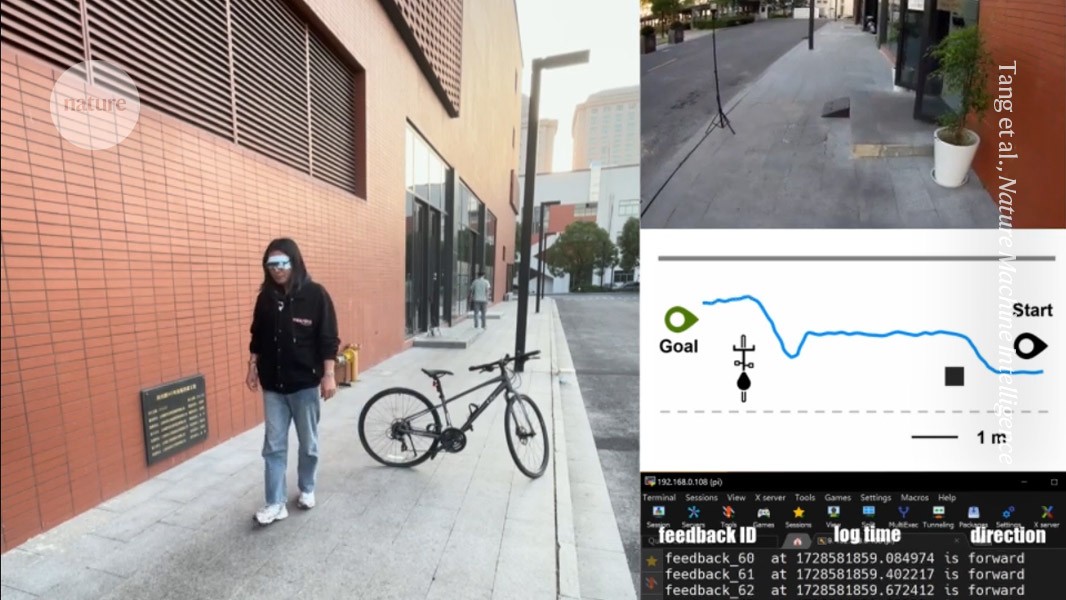
"A system that helps visually impaired people to navigate their surroundings using cameras, earphones and artificial intelligence (AI) could offer advantages over white canes and other conventional technologies."
"This system can partially replace the eyes, says study co-author Leilei Gu, an AI researcher at Shanghai Jiao Tong University in China."
"This paper is about how to make a very, very intelligent stick, says Botond Roska, but he adds that it is too early to say to what extent people will actually adopt the technology."
"The researchers also created flexible 'artificial skin' patches that users wear on their wrists and fingers, for additional navigational assistance."
Researchers developed an AI-based navigation system to aid visually impaired individuals, featuring smart glasses equipped with real-time audio alerts and feedback based on camera footage. In trials, participants showed a 25% improvement in navigation compared to conventional white canes. This innovative system could complement existing mobility aids, but further refinement is needed for reliability and user safety. It features innovative enhancements like artificial skin patches to assist users in navigating their environments more effectively. While promising, experts caution that its widespread adoption may take time.
Read at Nature
Unable to calculate read time
Collection
[
|
...
]